|
Books Should Be Free Loyal Books Free Public Domain Audiobooks & eBook Downloads |
|
|
Books Should Be Free Loyal Books Free Public Domain Audiobooks & eBook Downloads |
|
History Books |
|---|
|
Book type:
Sort by:
View by:
|
By: George Broke (1861-1932) | |
|---|---|
 With Sack and Stock in Alaska
With Sack and Stock in Alaska
In 1888, George Broke with Harold Topham and William Williams, made the first exploration of the Alaskan Mt. St. Elias range, including the crossing of the great Malaspina Glacier and an attempt on the S.E. face of Mt. St. Elias itself. The journey is described in the interesting work With Sack and Stock in Alaska, vividly detailing the country visited and the characters met along the way. - Summary by Fritz | |
By: George Cooreman (1852-1926) | |
|---|---|
 Martyrdom Of Belgium; Official Report Of Massacres Of Peaceable Citizens, Women And Children By The German Army; Testimony Of Eye-Witnesses
Martyrdom Of Belgium; Official Report Of Massacres Of Peaceable Citizens, Women And Children By The German Army; Testimony Of Eye-Witnesses
The title says it all. World War I narratives of German activities in Belgium after the German invasion of this neutral country. - Summary by david wales | |
By: George Davis | |
|---|---|
 Frostiana: or a history of the River Thames in a frozen state
Frostiana: or a history of the River Thames in a frozen state
The frost fair of 1814 began on 1 February, and lasted four days. A printer named George Davis published a 124-page book, "Frostiana; or a History of the River Thames in a Frozen State". The entire book was type-set and printed in Davis's printing stall, which had been set up on the frozen Thames. The book is a written history of London's frost fairs, interspersed with humorous, cold-related sections including "How to Make Ice Cream" and "The Art of Ice Skating". - Summary by Wikipedia, Lewis Fletcher | |
By: George Dunderdale (1822-1903) | |
|---|---|
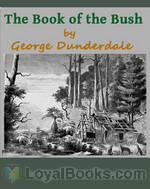 The Book of the Bush
The Book of the Bush
While the world was young, nations could be founded peaceably. There was plenty of unoccupied country, and when two neighbouring patriarchs found their flocks were becoming too numerous for the pasture, one said to the other: "Let there be no quarrel, I pray, between thee and me; the whole earth is between us, and the land is watered as the garden of Paradise. If thou wilt go to the east, I will go to the west; or if thou wilt go to the west, I will go to the east." So they parted in peace.(excerpt from book) | |
By: George Edmundson (1848-1930) | |
|---|---|
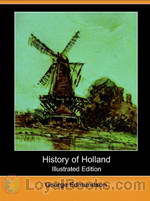 History of Holland
History of Holland
The title, “History of Holland,” given to this volume is fully justified by the predominant part which the great maritime province of Holland took in the War of Independence and throughout the whole of the subsequent history of the Dutch state and people. | |
By: George Eliot (1819-1880) | |
|---|---|
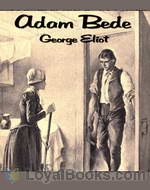 Adam Bede
Adam Bede
A young carpenter falls in love with the village beauty. She, however, has set her sights on a dashing army captain who's the son of the wealthy local squire. Meanwhile, a beautiful and virtuous young woman preacher arrives in the village. What happens to these people and the strange twists and turns that their lives take are described in the rest of the book. Adam Bede was George Eliot's first published novel. Published in 1859, the book has remained a firm favorite with readers and academicians alike and is still taught in many English literature courses all over the world... | |
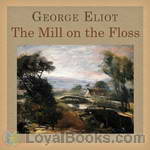 The Mill on the Floss
The Mill on the Floss
The novel details the lives of Tom and Maggie Tulliver, a brother and sister growing up on the river Floss near the village of St. Oggs, evidently in the 1820’s, after the Napoleonic Wars but prior to the first Reform Bill (1832). The novel spans a period of 10-15 years, from Tom and Maggie’s childhood up until their deaths in a flood on the Floss. The book is fictional autobiography in part, reflecting the disgrace that George Eliot (Mary Ann Evans) herself had while in a lengthy relationship with a married man, George Henry Lewes... | |
By: George Hamilton | |
|---|---|
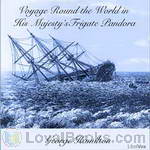 Voyage Round the World in His Majesty's Frigate Pandora
Voyage Round the World in His Majesty's Frigate Pandora
George Hamilton was the surgeon assigned to the frigate Pandora. The British Admiralty ordered the ship to the Pacific to arrest the Bounty mutineers and bring them back to England for trial. The commander, Captain Edward Edwards, also was ordered to chart the passage between Australia and New Guinea. While Edwards managed to arrest the mutineers still on Tahiti, he sank the Pandora on a reef near Australia. Hamilton tells this story and also the story of the crew’s fate after the Pandora sank. | |
By: George Henry Wakeling (1859-1936) | |
|---|---|
 King and Parliament (A.D. 1603-1714)
King and Parliament (A.D. 1603-1714)
This slim volume by the Oxford University lecturer, George Henry Wakeling, deals with the period in British history from the reign of King James I through the death of Queen Anne. The story begins with England, transformed by the Protestant Reformation and keen to confront Catholic Spain, but burdened by a monarch unequal to national ambitions. Wakeling portrays the subsequent battles for dominance between the contending Protestant sects and chronicles the struggle for sovereignty between the British Crown and the emerging power of Parliament. - Summary by Pamela Nagami | |
By: George Hooper (1824-1890) | |
|---|---|
 Wellington
Wellington
Arthur Wellesley, 1st Duke of Wellington, , was born in Dublin, the younger son of an Irish Protestant aristocrat. He served with his brother in India and rose to prominence during the Napoleonic Wars in the Peninsular Campaign. As a youth, his mother saw little promise in him, but Wellesley was an early riser and a hard worker, inured to the harsh life of the army camp, and conscientious in his knowledge of terrain and of defensive tactics. He famously commanded the allied forces at the final defeat of Napoleon at Waterloo, but the two men never actually met... | |
By: George L. Apperson (1857-1937) | |
|---|---|
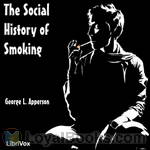 The Social History of Smoking
The Social History of Smoking
This work tells the history of smoking in England from the social point of view. Thus it does not deal with the history of tobacco growing or tobacco related manufacture, but is rather the story of how smoking has fitted in with the fashions and customs throughout the ages, and the changes in the attitude of society towards smoking. | |
By: George Morang (1866-1937) | |
|---|---|
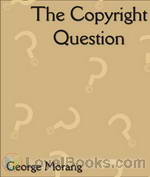 The Copyright Question
The Copyright Question
This is a letter to the Toronto Board of Trade regarding Canadian copyrights. Morang requested an appearance before the Toronto Board of Trade but was denied. This is his letter in response. He wished to make clear his position. | |
By: George Payne Rainsford James (1799-1860) | |
|---|---|
 Forest Days: A Romance of Old Times
Forest Days: A Romance of Old Times
Picture a tranquil English village, with an inn on the green. A lone patron enjoys his wine and teasing the landlord's pretty daughter, when suddenly they are rudely interrupted by a local aristocrat and his two henchmen. These same three reappear the following day to disrupt the May Day celebrations.Suddenly, a group of men in Lincoln green appear to save the day. But who are they? This is a different take on the tale of Robin Hood, placing him in the time of Henry III, rather than the more traditional reign of Richard I... | |
By: George Pearson | |
|---|---|
 The Escape of a Princess Pat
The Escape of a Princess Pat
Being the full account of the capture and fifteen months’ imprisonment of Corporal Edwards, of the Princess Patricia’s Canadian Light Infantry, and his final escape from Germany into Holland. | |
By: George Raffalovich (1880-1958) | |
|---|---|
 Ukraine
Ukraine
“We are not the same nation with Russian people,” the statement which all Ukrainians wish to convey to the whole world for centuries. The striving for freedom and independence is what these people shed much of their blood on Ukrainian lands for. “The Ukraine” by Bedwin Sands describes Ukrainian problem, which exacerbated in the late 19th and early 20th centuries, by looking back at the Ukrainian history, the development of Ukrainian literature and its influence, and by considering its relations with Austria and Russia. | |
By: George William Cox (1827-1902) | |
|---|---|
 Crusades
Crusades
The Crusades were a series of religious wars fought between 1096 and 1272 to recover the Holy Land from Islamic rule. According to the Latin Church, Crusaders were penitent pilgrims whose sins were forgiven. British historian, George Cox, writes of the churchmen, great and small, who inspired the Crusades, of the warriors who left families and lands behind, of the wily Venetian merchants and Byzantine emperors who exploited the knights, and of the valor of the Saracens. Here are accounts of sublime sacrifice and bestial ferocity, of dynastic conflict within the Crusader States, of sieges, starvation, pestilence, and ambush, and of the clash and interpenetration of two cultures... | |
By: George-Günther Freiherr von Forstner (1882-1940) | |
|---|---|
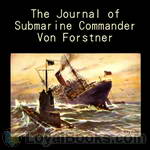 The Journal of Submarine Commander Von Forstner
The Journal of Submarine Commander Von Forstner
The Journal of Submarine Commander Von Forstner is a graphic account of WWI submarine warfare. Forstner was the commander of German U-boat U-28. His journal, first published 1916, gives a gritty picture of daily life inside a submarine and details several torpedo attacks on Allied shipping. The 1917 translation of Forstner’s journal into English was unquestionably intended to bolster the Allied war effort. In the foreword, the translator states: “Nothing at the present day has aroused such fear as this invisible enemy, nor has anything outraged the civilized world like the tragedies caused by the German submarines... | |
By: Geronimo (1829-1909) | |
|---|---|
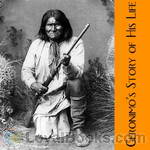 Geronimo’s Story of His Life
Geronimo’s Story of His Life
Geronimo’s Story of His Life is the oral life history of a legendary Apache warrior. Composed in 1905, while Geronimo was being held as a U.S. prisoner of war at Fort Sill, Oklahoma, Geronimo’s story found audience and publication through the efforts of S. M. Barrett--Lawton, Oklahoma, Superintendent of Education, who wrote in his preface that “the initial idea of the compilation of this work was . . . to extend to Geronimo as a prisoner of war the courtesy due any captive, i.e. the right to state the causes which impelled him in his opposition to our civilization and laws... | |
By: Gertrude Atherton (1857-1948) | |
|---|---|
 Rezanov
Rezanov
This novel by the prolific Californian author Gertrude Horn Atherton is based on the real life story of Nikolai Rezanov, a man who, in 1806, pushed for the Russian colonization of Alaska and California. "Not twenty pages have you turned before you know this Rezanov, privy councilor, grand chamberlain, plenipotentiary of the Russo-American company, imperial inspector of the extreme eastern and northwestern dominions of his imperial majesty Alexander the First, emperor of Russia—all this and more, a man... | |
By: Gertrude Bell (1868-1926) | |
|---|---|
 Syria: the Desert and the Sown
Syria: the Desert and the Sown
Gertrude Bell's Syria: The Desert and the Sown describes her travels in the Levant during the first years of the 20th century. In this vivid and painstakingly documented narrative, Bell recounts her visits to Damascus, Jerusalem, Beirut, Antioch and Alexandretta, as well as the time she spent in the deserts of the region. Fluent in Arabic and several other languages, Bell brings to her account a level of insight beyond the reach of an average travel writer. She would later go on to play a highly influential role in the politics of the Middle East, drawing on the knowledge and personal connections she built up during these and other travels... | |
By: Gertrude Burford Rawlings | |
|---|---|
 The Story of Books
The Story of Books
Rawlings follows the development of printing from the origins of writing to modern printing. Some of the earliest records are ancient Egyptian, Greek and Roman recordings on papyrus and wax tablets. However, Rawlings acknowledges the sparse nature of this first fragile evidence, and limits speculation.Later, libraries of religious books grew in Europe, where monks copied individual books in monasteries. The "block printing" technique began with illustrations carved in wood blocks, while the text needed to be written by hand... | |
By: Giacomo Casanova (1725-1798) | |
|---|---|
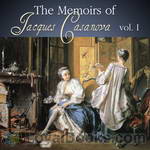 The Memoirs of Jacques Casanova
The Memoirs of Jacques Casanova
This is the first of five volumes. – Giacomo Casanova (1725 in Venice – 1798 in Dux, Bohemia, now Duchcov, Czech Republic) was a famous Venetian adventurer, writer, and womanizer. He used charm, guile, threats, intimidation, and aggression, when necessary, to conquer women, sometimes leaving behind children or debt. In his autobiography Histoire de ma vie (Story of My Life), regarded as one of the most authentic sources of the customs and norms of European social life during the 18th century, he mentions 122 women with whom he had sex... | |
By: Gilbert Parker (1862-1932) | |
|---|---|
 Seats of The Mighty
Seats of The Mighty
| |
By: Gilbert White (1720-1793) | |
|---|---|
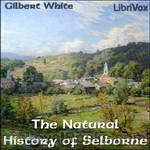 The Natural History of Selborne
The Natural History of Selborne
The Reverend Gilbert White was the curate of the village of Selborne, a village in Hampshire, from 1784 to his death in 1793, living most of his life in the village. The book is in the form of a collection of letters to two friends, discussing the natural history of the areas that he knew, and natural history in general. White’s intense curiosity and his love for the world about him flow through his simple, straightforward style, and a gentle sense of humour colours many of his anecdotes. | |
By: Gildas | |
|---|---|
 On the Ruin of Britain
On the Ruin of Britain
Gildas was a well-informed and definitely opinionated 6th century commentator on the topic of the era of the Roman occupation of Britain beginning in AD 43, the subsequent desertion of Britain by the legions in AD 410, and then invasions by the Scots, Picts and Saxons. Gildas was critical of his fellow Britons, accusing them of unwarranted rebellion against the beneficial rule of Roman law, and of then pusillanimously calling upon Rome to help them defend against the invading Picts and Scots from the north... | |
By: Giles Lytton Strachey (1880-1932) | |
|---|---|
 Eminent Victorians
Eminent Victorians
On Modern Library's list of 100 Best Non-Fiction books, "Eminent Victorians" marked an epoch in the art of biography; it also helped to crack the old myths of high Victorianism and to usher in a new spirit by which chauvinism, hypocrisy and the stiff upper lip were debunked. In it, Strachey cleverly exposes the self-seeking ambitions of Cardinal Manning and the manipulative, neurotic Florence Nightingale; and in his essays on Dr Arnold and General Gordon, his quarries are not only his subjects but also the public-school system and the whole structure of nineteenth-century liberal values. | |
By: Giorgio Vasari (1511-1574) | |
|---|---|
 Lives of the Most Eminent Painters, Sculptors and Architects
Lives of the Most Eminent Painters, Sculptors and Architects
The Lives of the Most Excellent Italian Painters, Sculptors, and Architects, from Cimabue to Our Times, or Le Vite delle più eccellenti pittori, scultori, ed architettori, as it was originally known in Italian, is a series of artist biographies written by 16th century Italian painter and architect Giorgio Vasari, which is considered "perhaps the most famous, and even today the most- read work of the older literature of art", "some of the Italian Renaissance's most influential writing on art", and "one of the founding texts in art history"... | |
By: Giovanni Boccaccio (1313-1375) | |
|---|---|
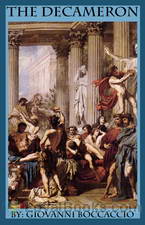 The Decameron
The Decameron
Giovanni Boccaccio’s The Decameron is a collection of novellas or short novels written during the 14th century. There are 100 tales contained in the book which is presented together. The book’s title The Decameron combines the two Greek words “deka” meaning ten and “hemera” meaning day. The title can be literally translated as “ten day,” which is also the time frame in which the stories are told by the 7 young women and 3 young men. In the book, each of the ten persons took their turns to tell stories for a day... | |
By: Giovanni Verga (1840-1922) | |
|---|---|
 House by the Medlar Tree
House by the Medlar Tree
In a nineteenth century Sicilian fishing village, the Malavoglia family gambles everything on being able to profit from a cargo of lupin nuts. The cargo is lost at sea and a succession of misfortunes and tragedies assails the family. A masterpiece of social commentary hailed within Italy but neglected by the wider world, The House by the Medlar Tree ranks alongside the works of Zola, Dickens or Balzac among the great books of European literature. The book is the inspiration behind the 1948 film 'La Terra Trema' , one of the earliest works of the great Italian director Luchino Visconti. - Summary by Tom Denholm | |
By: Glenn D. Bradley (1884-1930) | |
|---|---|
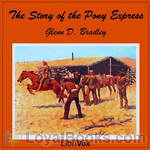 The Story of the Pony Express
The Story of the Pony Express
The Story of the Pony Express offers an in depth account behind the need for a mail route to connect the eastern U.S. with the rapidly populating west coast following the gold rush of California, the springing up of lumber camps, and all incidental needs arising from the settling of the western frontier. Here we learn of the inception of the Pony Express, its formation, successes, failures, facts, statistics, combined with many anecdotes and names of the people who were an integral part of this incredible entity which lasted but less than two years, yet was instrumental in the successful settlement of two thirds of the land mass comprising the expanding country... | |
By: Grazia Deledda (1871-1936) | |
|---|---|
 After the Divorce
After the Divorce
Giovanna and Costantino Ledda are a happily married couple living with their young child in a Sardinian country village close to their extended family. Costantino is wrongly convicted of murdering his wicked uncle and with no way of supporting herself, Giovanna reluctantly divorces him and is driven to marry Brontu Dejas, a wealthy but brutish drunkard who has always lusted after her. As well as enduring a marriage amounting to slavery, Giovanna is derided by villagers for having two husbands... | |
By: Gregory of Tours (538-594) | |
|---|---|
 Selections of the History of the Franks
Selections of the History of the Franks
The Historia Francorum is the most important contemporary source for the Merovingian age. It is written in ten books, of which one to four recount the world's history from the Creation and move on to the Christianization of Gaul, the life and times of Saint Martin of Tours, the conversion of the Franks, the conquest of Gaul under Clovis, and the history of the Frankish kings down to the death of Sigebert I in 575. From the fifth book on, Gregory starts the second part of the book, on his contemporary history, closing Book 6 with Chilperic I's death in 584... | |
By: Gustave Flaubert (1821-1880) | |
|---|---|
 Salammbô
Salammbô
After completing the famous Mme Bovary, Flaubert put all his efforts into researching the Punic Wars and completed the lesser known Salammbô. In this volume, Flaubert describes in detail the Mercenary Revolt and the fight of the Mercenaries against the all-powerful Carthage, the theft of the magical Zaimph and the love and hate between the Carthaginian princess Salammbô and the fiercest leader of the Mercenaries, Matho. | |
By: Gustavus Cheyney Doane (1840-1892) | |
|---|---|
 Yellowstone Expedition of 1870
Yellowstone Expedition of 1870
Lt. Gustavus Doane was a member of the 1870 Yellowstone Expedition led by Henry Washburn. Washburn requested military support from General Hancock of the US Army who selected Doane to lead a detail of five soldiers from Fort Ellis in Montana to accompany the expedition. This is Doane's journal submitted by the War Department to the US Senate reporting on the observations of the expedition. The record kept by Doane is recognized as a significant contribution to the subsequent creation of Yellowstone National Park. - Summary by Fritz | |
By: H. A. Guerber (1859-1929) | |
|---|---|
 Story of the Greeks
Story of the Greeks
This book is a collection of stories and histories about the Ancient Greeks, including many of their famous myths! | |
 Story of Old France
Story of Old France
The aim of this volume is to give a complete graphic account of the main features of the history of France to 1715 A.D., with as much additional illuminating detail as limited space permits. Besides outlines of the principal events, this narrative includes many biographical sketches, together with the anecdotes and sayings to which allusions are often made in literature, politics, and arts. It also gives such data in regard to places, public buildings, and works of art as the well informed like to have at their fingers' ends. | |
By: H. G. Wells (1866-1946) | |
|---|---|
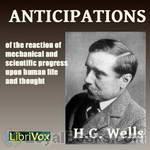 Anticipations
Anticipations
Wells considered this book one of his most important, a natural follow-up to such works as his Man of the Year Million and The Time Machine. His goal was to get people to think and act in new ways. The book starts with a look at how humans get along socially and how they carry out their business ventures. It then discusses how these elements influence others, such as politics, the world of work, and education. H. G. tried to make clear how the current social order was disintegrating without preparing another to take its place. He then traced the roots of democracy, which in its present state he saw as unworkable. Instead, he proposed a new republic. He also critiqued modern warfare. | |
By: H. Rider Haggard (1856-1925) | |
|---|---|
 The Brethren
The Brethren
Set in the days of the Crusaders, this books tells of a young maiden named Rosamund, and her twin cousins. Godwin is the grey eyed thoughtful man, and Wulf is the blue eyed warrior. They are both knights of England and they are both in love with their fair cousin. But the riddle of the story is which does Rosamund love?The adventure begins when Rosamund is taken from England and carried to the East. The plot thickens as the two young knights follow her in hopes of rescuing her from the Muslim leader, Saladin... | |
 Jess
Jess
The setting for this novel is the Boer War in South Africa in 1880. This novel is interesting and exciting on several levels: there are complicated love entanglements, evil Machiavellian treachery, political reflection having to do with the ethics of the colonialism of the day, for one subject for thought, and war in all its lurid and shocking and murderous detail. | |
By: Haji A. Browne | |
|---|---|
 Bonaparte in Egypt and the Egyptians of To-day
Bonaparte in Egypt and the Egyptians of To-day
Knowing the Egyptian as I know him, I cannot but think that he is greatly misunderstood, even by those who are sincerely anxious to befriend him. His faults and his failings are to be found at large in almost any of the scores of books that have of late years been written about him and his country; but, though not a few have given him credit for some of his more salient good points, yet none that I have seen have shown any just appreciation of him as he really is. (From the Preface) | |
By: Hamilton Wright Mabie (1846-1916) | |
|---|---|
 Young Folks' Treasury, Volume 6 - Famous Travels & Adventures
Young Folks' Treasury, Volume 6 - Famous Travels & Adventures
Historical vignettes of selected locations throughout the world and many of our early explorers as well. Fascinating travel adventures throughout Europe, Asia, America, etc. for young and old alike. Perfect for the armchair traveler who enjoys learning of our global past... - Summary by BettyB | |
By: Hannah Glasse (1708-1770) | |
|---|---|
 Art Of Cookery Made Plain And Easy
Art Of Cookery Made Plain And Easy
Although this recording has been made using the 1784 version, the original book of The Art of Cookery, Made Plain and Easy was first published by subscription in 1747 by Hannah Glasse and was a compilation of the recipes typical for British meals produced in the kitchens of the more affluent classes in the 1700s. It will become obvious to the reader of this book that Hannah Glasse was a very experienced and consummate cook totally focussed on preparing and presenting a wholesome and varied range of fare for the family and guests of the household in the most economic and efficient manner possible... | |
By: Hargrave Jennings (1817-1890) | |
|---|---|
 Phallic Worship
Phallic Worship
A fairly scholarly, short survey of religious sexual symbols and practices from ancient times to the near-present, and within various countries and religions. The essay is coloured by liberality and acceptance of common themes between different religions. Note: "phallic" in the context of this work refers to both male and female genitalia. | |
By: Harold W. Fairbanks (1860-1952) | |
|---|---|
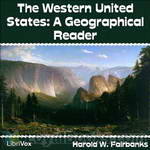 The Western United States: A Geographical Reader
The Western United States: A Geographical Reader
“In preparation of this book the author has had in mind the needs of the upper grammar grades. The subject matter has not been selected with the object of covering the field of Western geography in a systematic manner, but instead the attempt has been made to picture as graphically as may be some of its more striking and interesting physical features, and the influence which these features have exerted upon its discovery and settlement.” (from the Preface of The Western United States) | |
By: Harriet Beecher Stowe (1811-1896) | |
|---|---|
 Oldtown Folks
Oldtown Folks
1870's rural Massachusetts communities became famous as “Oldtown” in Harriet Beecher Stowe's 7th novel and national bestseller. Based partially on her husband Rev. Calvin Stowe's childhood memories and other old timers' recollections, this story of growing up in rural New England just after the American Revolution is one of the earliest examples of local color writing in New England. Young Horace Holyoke, the novel's narrator, describes life during the early Federalist years, capturing its many rich ideas, customs, and family lore... | |
 Key To Uncle Tom's Cabin
Key To Uncle Tom's Cabin
After the publication of Uncle Tom’s Cabin, which many claim sparked off the Civil War that put an end to legalized slavery in America, there was a great outcry that Stowe had blown her fictional story out of all proportion to the facts. She was viewed by some as an irresponsible monster. Stowe defended herself by painstakingly publishing this Key, describing the actual people, incidents, statutes, court cases, news articles, advertisements, and published facts from whence she drew her material... | |
 Dred, A Tale of the Great Dismal Swamp
Dred, A Tale of the Great Dismal Swamp
This is Stowe's second book, another one depicting the horrors of southern slavery, published 4 years after Uncle Tom's Cabin and 5 years before the commencement of the Civil War, when new territories wanting admittance into the US , were vying to become slave states, threatening to spread the heinous system. While a work of fiction, the book successfully documents the horrors of the slave system, and depicts how some slaves escaped into the Dismal Swamp , where they often lived for years hiding from their pursuers, often in community... | |
By: Harriet H. Robinson (1825-1911) | |
|---|---|
 Loom and Spindle
Loom and Spindle
Harriet Robinson was a frequent contributor to the famous monthly periodical, "The Lowell Offering", which featured poetry, essays and fiction written between 1840-1845 by the young female textile workers known as Lowell Mill Girls, living in the innovative Lowell, Massachusetts textile mills communities. Articles published therein describe their living conditions, where they came from, how they felt about their jobs, challenges met, bosses, new experiences and education they received. Rev. A.C... | |
By: Harriet Theresa Comstock (1860-1925) | |
|---|---|
 Molly, The Drummer Boy
Molly, The Drummer Boy
Molly, The Drummer Boy is the tale of a brave drummer, who, during the war of the Revolution, passed like a gleam of brightness, fun—and alas! sadness through the scenes of war and bloodshed; winning the friendship of all, the esteem and consideration of General Washington himself, and lastly a page or so in history. - Summary by Harriet Theresa Comstock | |
By: Harris Newmark (1834-1916) | |
|---|---|
 Sixty Years in Southern California 1853-1913
Sixty Years in Southern California 1853-1913
Harris Newmark was personally acquainted with every person and family involved in the founding of the city of Los Angeles, California. He gathers into this well-written book his reminiscences of the period from 1853 to 1913, as Los Angeles developed from a tiny village surrounded by great ranchos into a modern city. This book is a fascinating treasure trove of information for anyone who lives in Los Angeles. ***NOTE: It should be noted that there is language within this book that was commonplace during the time this book was written that is often considered offensive today.*** | |
By: Harrison Ainsworth | |
|---|---|
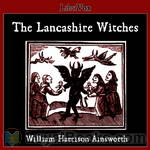 The Lancashire Witches
The Lancashire Witches
The Lancashire Witches is a highly fictionalised account of the activities of the notorious witches Demdike, Chattox and Alice Nutter who, together with others terrorised the district of Lancashire around Pendle Hill and the Forest of Bowland during the early seventeenth century. The witches named in the book were real enough, if not as witches then as people. Ainsworth, in his story brings in the dissolution of Whalley Abbey and the historic families of Assheton, Braddyll and Nowell and takes us through to the final trial and execution at Lancaster Castle in 1612. (Summary by Andy Minter) | |
By: Harry Thurston Peck (1856-1914) | |
|---|---|
 Twenty Years of the Republic 1885-1905
Twenty Years of the Republic 1885-1905
Excerpt: At the time when Mr. Cleveland was inaugurated there had been no Democratic President for a full quarter of a century. A whole generation had been born and had grown to manhood and to womanhood without ever having lived under any but Republican rule. This long continuance in power of a single party had led many citizens to identify the interest of that party with the interests of the nation. The democrats had been so invariably beaten at the polls as to make Republicans believe that the defeated party had no decent reason for existence, and that is was composed only of wilful obstructionists or of persons destitute of patriotism... | |
By: Helen Nicolay (1866-1954) | |
|---|---|
 Boys' Life of Abraham Lincoln
Boys' Life of Abraham Lincoln
The Boys’ Life of Abraham Lincoln is a biography with many anecdotes that takes one deeper into the thoughts, personality, and beliefs of the man that was Lincoln. While the title indicates the book is about Lincoln’s life as a boy, the book is a full, if somewhat shortened biography. It is very well written and was a joy to record. One might ask, "Who was Helen Nicolay?" Her father, John George Nicolay, was Abraham Lincoln's private secretary and doubtless much of the material comes from his complete biography of Abraham Lincoln. ( | |
By: Helen S. Wright | |
|---|---|
 Great White North
Great White North
Sketches of those who braved the 'Great White North' in exploration and adventure. - Summary by KevinS | |
By: Helen W. Pierson | |
|---|---|
 History of England In Words of One Syllable
History of England In Words of One Syllable
A simple history of England written principally with words of one syllable. Books of these kind, I understand, are helpful for both beginning and remedial reading students. - Summary by KevinS | |
 Lives of the Presidents of the United States in Words of One Syllable
Lives of the Presidents of the United States in Words of One Syllable
This book consists of simple biographies of the first 23 Presidents of the United States written chiefly in words of one syllable. Books such as this one were popular around the turn of the 20th century as a way to help children learn to read. A book like this could also be useful for ESL learners as well. - Summary by Mark Dykshoorn | |
By: Hendrik van Loon | |
|---|---|
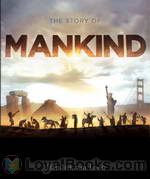 The Story of Mankind
The Story of Mankind
A book that won the Newberry Prize in 1921 for an Outstanding Contribution in Children's Literature, The Story of Mankind, by Hendrik van Loon is indeed a classic that has been enjoyed by generations of children and adults. The book is an engagingly written work, dedicated to the author Hendrik van Loon's two young son's Hansje and Willem. It was created to convey the history of the human race to young people in a way that was interesting, memorable and would spur them onto further research and reading into the subject... | |
By: Henrietta Elizabeth Marshall (1867-1941) | |
|---|---|
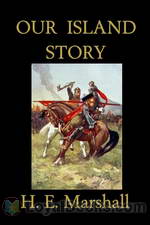 Our Island Story
Our Island Story
Tailored specially to make history more palatable and interesting to children, Our Island Story, by Henrietta Elizabeth Marshall, is a charmingly illustrated volume that promises hours of delight for parents as well as children. Beginning with the myths and legends about Albion, the author ensures that she captivates the child's imagination from the very first page. Unlike today's dry and non-committal history tomes that are prescribed in schools, Our Island Story is full of lyrical prose, literary allusions, heroic and tragic characters, the hunger for power and the glory of empire... | |
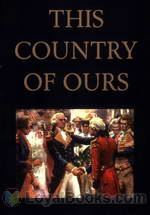 This Country of Ours
This Country of Ours
History made interesting for young readers—This Country of Ours by Henrietta Elizabeth Marshall provides a simple and easy to comprehend way of looking at the history of the United States. Arranged chronologically in seven long chapters, it presents events in a story form, making them memorable and very different from other formats. One of the challenges that writers of history face is about fleshing out the characters and making the bland repetition of dates and dynasties seem relevant to modern day readers... | |
By: Henriette Lucie Dillon, marquise de La Tour du Pin Gouvernet (1770-1853) | |
|---|---|
 Recollections of the Revolution and the Empire
Recollections of the Revolution and the Empire
An aristocratic Frenchwoman's personal record of the dazzling extravagance of the Ancien Régime, of the court of Marie Antoinette, of the Revolution, of her life in exile and of the court of Napoleon Bonaparte. This famous historically valuable memoir, written for her son, ends with Napoleon's return from Elba in 1815. | |